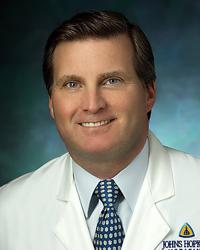-
Paul M. Hassoun, MD
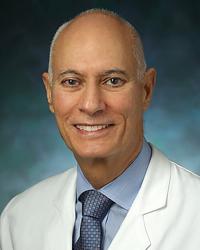
- Director, Pulmonary Hypertension Program
- Professor of Medicine
Expertise: Pulmonology
-
Stephen Mathai, MD MHS
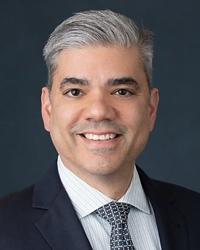
- Director, Inpatient Pulmonary Service, Johns Hopkins Hospital
- Associate Professor of Medicine
Expertise: Pulmonology
Pulmonary Hypertension and Pulmonary Vascular Disease
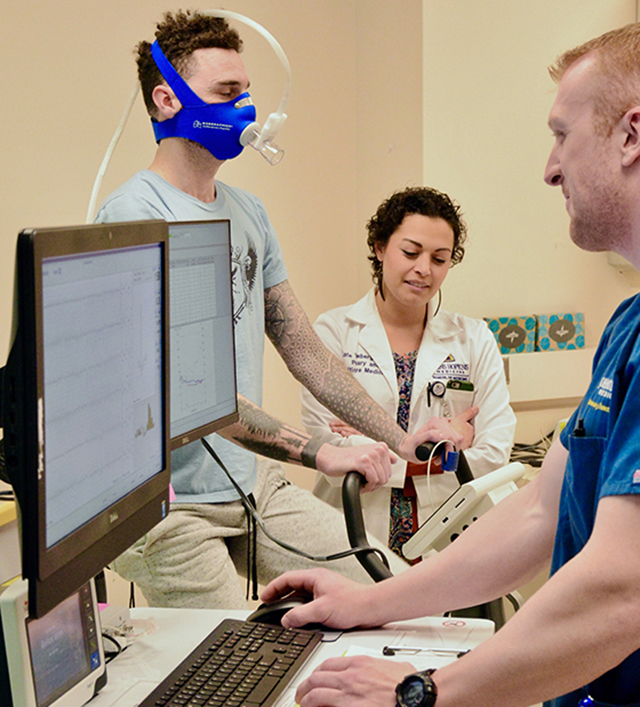
The Johns Hopkins Pulmonary Hypertension Program (JHPHP) was established in 1999 and is among the largest pulmonary hypertension (PH) programs in the country. The JHPHP is formally accredited as a Pulmonary Hypertension Comprehensive Care Center (CCC) by the Pulmonary Hypertension Association. The program is made up of a multi-disciplinary team of pulmonary vascular disease experts with advanced training in pulmonary, rheumatology, cardiology, radiology and anesthesiology along with dedicated nurses and support staff. We evaluate and treat all forms of pulmonary hypertension, including idiopathic pulmonary arterial hypertension (IPAH) and diseases associated with pulmonary arterial hypertension (PAH) such as connective tissue diseases, liver disease, congenital heart disease, and hereditary forms of the PAH. In addition, we treat conditions such as pulmonary emboli (PE) and unexplained shortness of breath. We have specific expertise in the medical management of PH, including initiation and management of advanced therapies for PAH (inhaled, intravenous and subcutaneous infusions of prostacyclin analogues). The JHPHP evaluates patients at the Johns Hopkins Outpatient Center (JHOC) at the East Baltimore campus of the Johns Hopkins Hospital.
The JHPHP sponsors a PH Patient support group. The support group meets quarterly and provides an opportunity for PH patients to interact and participate in educational lectures and discussions about PH treatment, research and experiences. The support group is open to any patients, caregivers or families impacted by PH, regardless of whether they get their PH care at Johns Hopkins. For the schedule and more information, please contact Laura Camponeschi at 410-614-6311 or [email protected].
Scheduling an Appointment
Prior to scheduling a new patient evaluation, we ask that all pertinent medical records be sent to our office for review. This review helps to identify testing that may need to be scheduled at the same time as the new patient appointment. Medical records can be faxed to 410-614-7451.
Studies Requested by Our Providers
The standard evaluation of Pulmonary Hypertension includes the following tests and procedures. These tests are not required to be seen as a new patient at Johns Hopkins.
- Echocardiogram: An ultrasound of your heart that shows the size, structure, and function of your heart. This test can often, but not always, estimate the pressures in your heart and lungs. These can be done either at Hopkins or outside of Hopkins. Occasionally, specialized views or maneuvers are requested that are more easily obtained at Hopkins in JHOC.
- Cardiac Magnetic Resonance Imaging (cardiac MRI): An imaging study of your heart that gives a more detailed image of your heart that can better quantify heart function than echo. This test is usually performed at Hopkins with a specific protocol for PH.
- CT of the Chest: An imaging study of your lungs. This can be performed with or without intravenous contrast to help visualize the pulmonary blood vessels and look for blockages. These can be done either at Hopkins or outside of Hopkins.
- Ventilation/Perfusion Scan (VQ scan): A radiographic study to look for blood clots in the lung. These can be done either at Hopkins or outside of Hopkins, however, many times these tests are done at Hopkins.
- Pulmonary Function Tests (PFTS): Breathing tests that quantify your lung function.
- Six-Minute Walk Test: A submaximal exercise test that measures the distance you can walk in six minutes while checking your oxygen levels, heart rate, and degree of breathlessness. We prefer that this test be performed at Hopkins in JHOC.
- Blood Work: Basic blood work looking at blood counts, kidney and liver function, and screening tests for viral and autoimmune diseases.
- PH cannot be properly diagnosed without a RHC. Most commonly, we request that this test be performed at Hopkins. This test is typically done in our catheterization laboratory in the Zayed Building on the East Baltimore campus of Johns Hopkins Hospital. This is an outpatient procedure that takes, on average, about 2 hours.
In most instances, patients should be seen in the JHPHP clinic prior to undergoing RHC, particularly if all of the tests outlined above have not been completed.
Our Physicians and Experts
Pulmonary and Critical Care Medicine
-
Rani Hasan, MD MHS
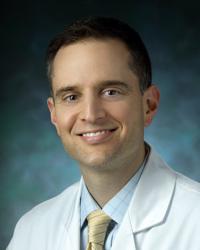
- Director, Interventional Cardiology Fellowship Program
- Assistant Professor of Medicine
Expertise: Interventional Cardiology
-
Steven Hsu, MD

- Medical Director, Mechanical Circulatory Support
- Assistant Professor of Medicine
Expertise: Heart Failure and Transplantation Cardiology
-
Robert George Weiss, MD

- Clarence Doodeman Professor of Cardiology
- Professor of Medicine
Expertise: Cardiology
-
Ilan S. Wittstein, MD
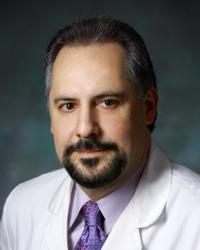
- Director, Advanced Heart Failure Fellowship
- Assistant Professor of Medicine
Expertise: Cardiology
-
Laura Hummers, MD

- Clinical Director, Division of Rheumatology
- Associate Professor of Medicine
Expertise: Rheumatology
-
Julie Paik, MD

- Director of Clinical Trials at the Johns Hopkins Myositis Center
- Associate Professor of Medicine
Expertise: Rheumatology
-
Ami Shah, MD

- Director, Division of Rheumatology, Department of Medicine
- Professor of Medicine
Expertise: Rheumatology
-
Fredrick Wigley, MD

- Director, The Johns Hopkins Scleroderma Center
- Professor of Medicine
Expertise: Rheumatology
Jochen Steppan, MD

- Director of Perioperative Medicine, High Risk Cardiovascular Disease
- Associate Professor of Anesthesiology and Critical Care Medicine
Expertise: Critical Care Medicine, Anesthesiology
Contact Information and Locations
Directions to the Pulmonary Hypertension Clinic at the Johns Hopkins Outpatient Center
Division of Pulmonary and Critical Care Medicine
Seventh Floor
601 N. Caroline Street
Baltimore, MD 21287
Phone: 410-614-6311
Fax: 410-614-7451

